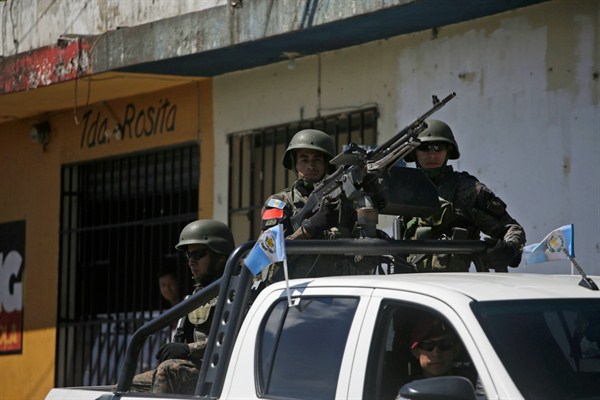GUATEMALA CITY—It looked like a modern-day re-enactment of the 1982 photograph of Gen. Efrain Rios Montt and other military officers at a press conference following their coup. On Aug. 31, military, police and special forces officers lined up several rows deep behind Guatemalan President Jimmy Morales, who announced the government’s decision not to renew the mandate of a United Nations-backed anti-corruption body, the International Commission Against Impunity in Guatemala, known by its Spanish acronym, CICIG. Although it has been widely praised internationally for exposing deep-seated networks of corruption within the highest levels of the Guatemalan government, bringing down several politicians including Morales’ predecessor, the commission has faced increasing pressure from a political class eager to see it shut down. Morales, facing corruption charges himself, has been the public face of those efforts.
For many Guatemalans, the government’s actions hark back to the violent military rule during the country’s 36-year civil war that ended in 1996. In the lead-up to Morales’ press conference, military vehicles suddenly began circulating in the capital.
“It’s a huge step backwards,” says Diego Ceto of the military presence that accompanied the announcement of CICIG’s closure. Ceto is a traditional indigenous leader of the Maya Ixil who hails from one of the areas in the country where state forces carried out acts of genocide during the war. He viewed the show of force late last month as a reminder to Mayan communities of the enduring presence and power of the military. But he and other indigenous authorities refuse to be intimidated and are demanding CICIG continue its work. “We’re prepared for the long-haul struggle,” he says.

